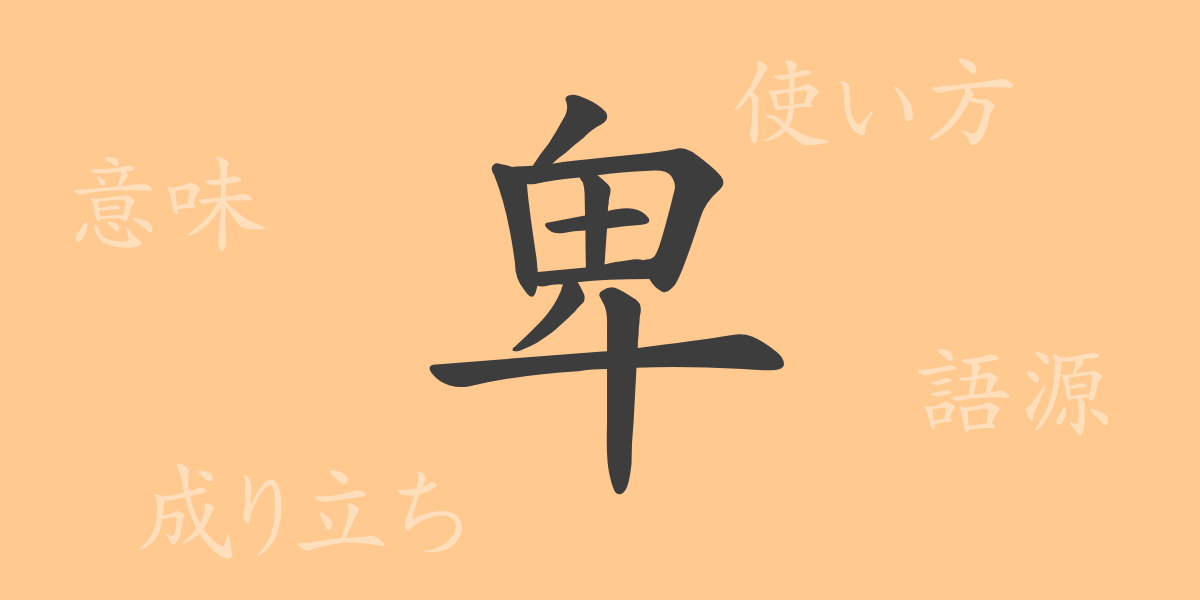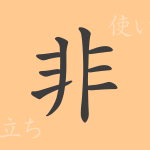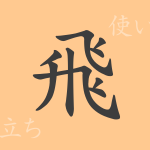In the rich world of Japanese expressions, there are surprisingly many kanji characters that are seldom used in everyday life. “卑” (ひ, hi) is one such kanji, with its unique shape, etymology, meaning, and various idioms and proverbs, it exemplifies the depth of the Japanese language. In this article, we will focus on the kanji “卑” (ひ, hi) and unravel all its aspects.
The Origin of “卑” (ひ, hi)
The kanji “卑” (ひ, hi) originates from ancient China. Derived from pictographs, this character originally depicted a person kneeling low on a high platform. From this posture, the meanings of “low” and “base” emerged, evolving through various cultures and eras into its current form. It is believed to have been introduced to Japan around the 5th century, significantly influencing Japanese culture and language since then.
The Meaning and Usage of “卑” (ひ, hi)
The kanji “卑” (ひ, hi) carries meanings such as “low,” “base,” and “vulgar,” and is used to describe actions, social status, or the value of things in a demeaning manner. Additionally, it is used in words like “卑怯” (ひきょう, hikyou), which refers to morally reprehensible behavior. In modern Japanese, it is often used with a negative connotation.
Reading, Stroke Count, and Radical of “卑” (ひ, hi)
Let’s take a closer look at the readings, stroke count, and radical of the kanji “卑” (ひ, hi).
- Readings: The on’yomi (音読み) is “ヒ” (hi), and the kun’yomi (訓読み) readings are “いやし.む” (iyashimu), “いや.しい” (iyashii), and “いや.しむ” (iyashimu).
- Stroke Count: The kanji “卑” (ひ, hi) has 8 strokes.
- Radical: The radical of “卑” (ひ, hi) is “十” (じゅう, juu).
Idioms, Proverbs, and Phrases Using “卑” (ひ, hi) and Their Meanings
Here are some idioms, proverbs, and phrases that include “卑” (ひ, hi):
- 卑下 (ひげ, hige): To deprecate oneself; carries a nuance of humility.
- 卑怯 (ひきょう, hikyou): Being mean-spirited and deceitful in trivial matters.
- 卑劣 (ひれつ, hiretsu): Being mean and base.
- 卑しい (いやしい, iyashii): Being vulgar and unrefined.
These idioms and phrases well represent the connotations and nuances contained in “卑” (ひ, hi) in the Japanese language.
Summary of “卑” (ひ, hi)
The kanji “卑” (ひ, hi), with its shape, etymology, and meanings, showcases the rich expressive power of the Japanese language. While it often carries negative connotations, it can also express humility, as in “卑下” (ひげ, hige). With its diverse usage, “卑” (ひ, hi) is one of the fascinating kanji to understand the depth of the Japanese language.

























